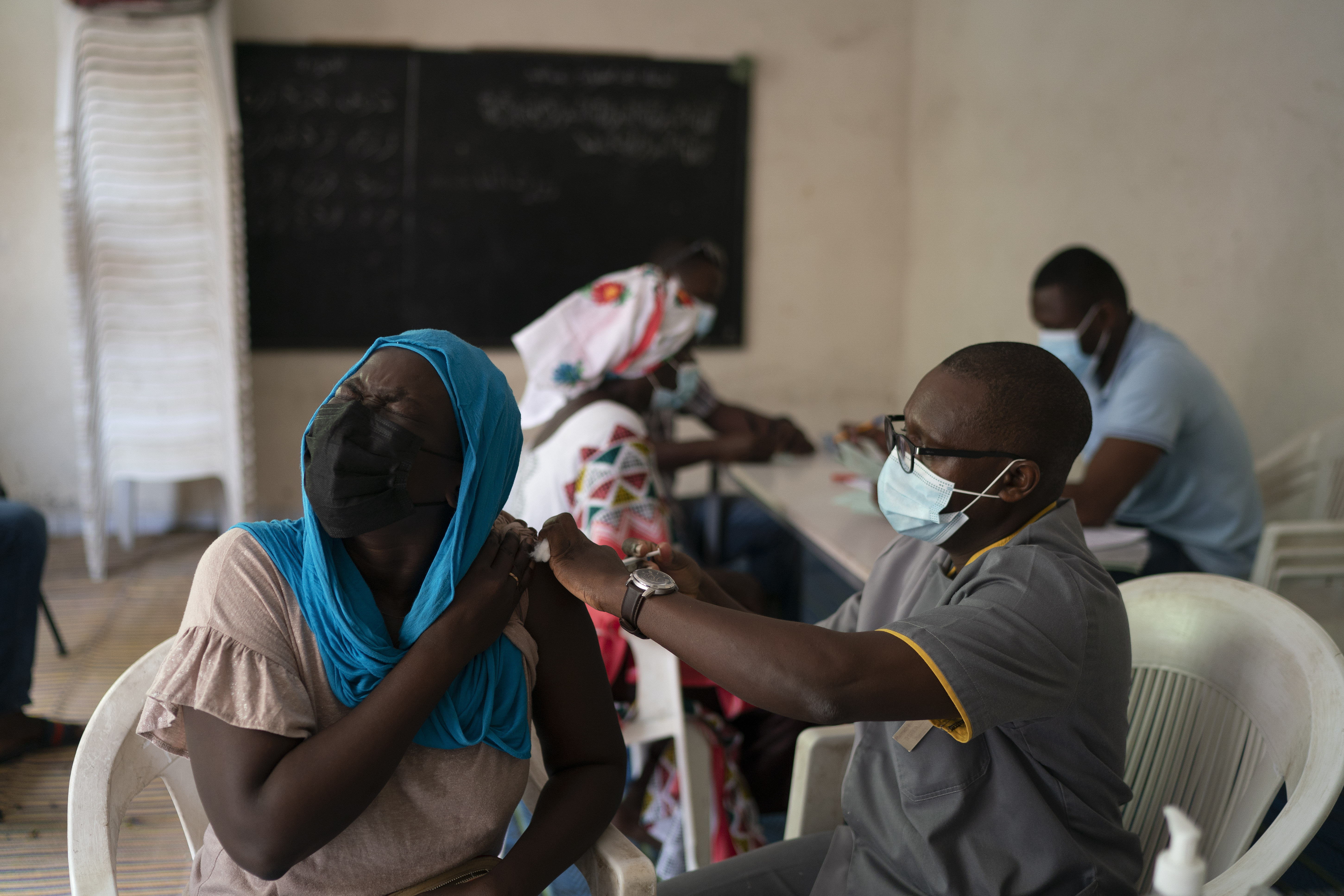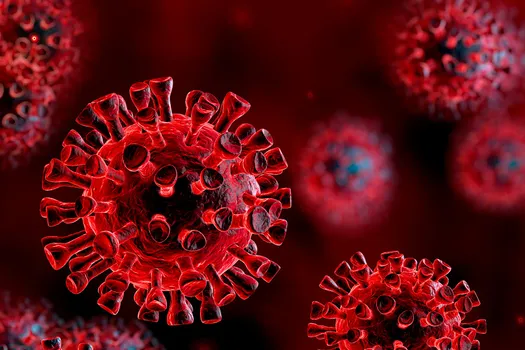| Jul 12, 2021, 6:02 AM |   | ||
| ||||
|
|
FREEDOM with honesty, justice, and courage.. COMPASSION with dignity, humour, and tolerance.. KNOWLEDGE with effort, perseverance and sharing.. LOVE with peace and harmony towards all LIFE ON EARTH. A science-based international free press humanitarian organization... created in 1972.. human4us2.blogspot.com...
| Jul 12, 2021, 6:02 AM |   | ||
| ||||
|
|
The global health agency has called for a moratorium to any boosters until the end of September.

The World Health Organization has called for a halt to any booster shots until the end of September so that more people in low-income countries can get vaccinated first.
The agency’s director-general, Tedros Adhanom Ghebreyesus, said that more than 4 billion vaccine doses have now been administered globally, but 80% of those have gone to richer countries.
And he said that while high-income countries have administered almost 100 shots for every 100 people, poorer countries have managed just 1.5 per 100 people.
“I understand the concern of all governments to protect their people from the delta variant,” he said at a press conference. “But we cannot accept countries that have already used most of the global supply of vaccines using even more of it, while the world’s most vulnerable people remain unprotected.”
He said a moratorium on boosters until the end of September would enable at least 10% of every country’s population to get vaccinated. Cases and deaths are spiking in Africa as the delta variant runs unchecked, the WHO announced on August 3. Deaths had risen by 80% in just the last four weeks, while less than 2% of the continent’s population is fully vaccinated.
The WHO’s latest intervention comes as a number of countries have started rolling out booster shots or are considering doing so. Israel began administering third shots last month, and France, Germany, and the UAE have all announced plans to begin a booster program. Others, like the UK and the US, are still considering it. The US has bought additional doses of the Pfizer vaccine in preparation but has not made any decision on whether to start rolling them out.
The science on whether boosters are required is still uncertain. “The evidence is evolving, it's moving,” Kate O’Brien, WHO’s director of immunizations, told reporters at the conference. “We don’t have a full set of evidence around whether this is needed or not.”
Pfizer released data last month suggesting that a third shot gave strong added protection against the delta variant. But existing vaccine regimens have been shown to provide good protection against all the major variants of concern.
Nevertheless, the WHO wants to refocus attention on getting a greater proportion of the world vaccinated before countries consider any sort of top-up. The agency has a target of getting 40% of the world vaccinated by the end of the year, and 70% by mid-2022.
“We need an urgent reversal from the majority of vaccines going to high-income countries to the majority going to low-income countries,” said Tedros, who urged vaccine producers to focus on donating to Covax, the scheme set up to get vaccines distributed to poorer countries. Last week, he said the scheme needs a big injection of funds to hit its targets.
White House press secretary Jen Psaki said the WHO had posed a “false choice,” telling the AP that the US will have enough vaccines to donate to poorer countries while also being able to roll out boosters if required.
HELLO GENTLE PEOPLE!
LIKE MOST PEOPLE IN QUEBEC WHO WERE TWICE VACCINATED, I WAS PREPARED TO RELAX AND ENJOY MY SUMMER UNTIL TODAY, WHEN I DID A LITTLE RESEARCH AND DISCOVERED HOW EXPERTS AND DOCTORS ARE CONCERNED THAT QUEBEC IS UNDERESTIMATING THE PRESENCE OF THE DELTA VARIANT.
THE DELTA VARIANT IS MUCH MORE CONTAGIOUS THAN THE ORIGINAL STRAIN AND IF ALLOWED TO INFILTRATE UNSUSPECTING QUEBEC CITIZENS; IN OTHER WORDS IF WE LOWER OUR GAURDS AND RELAX, MANY OF US COULD DIE!
DAVID FISMAN IS AN EPIDEMIOLOGIST AND PROFESSOR AT THE UNIVERSITY OF TORONTO AND HE CLAIMS, ALONG WITH A FEW MORE EXPERTS, THAT THE DELTA VIRUS WILL CAUSE LARGER EPIDEMICS AND BE MORE DIFFICULT TO CONTROL. "WE FIND THAT PATIENTS WITH THE DELTA STRAIN ARE THREE TIMES MORE LIKELY TO GO TO INTENSIVE CARE AND TWICE AS LIKELY TO DIE THAN PATIENTS WITH THE ORIGINAL STRAIN OF SARS-CoV-2.."
====================
“Right now, things are going well in Canada from a COVID-19 perspective. But who knows what awaits us?“ said Paul Warshawsky, head of the intensive care unit at the Jewish General Hospital. “It’s not over, it’s just a new normal. And what’s frustrating for us in the health-care system is that for a lot of the population (the pandemic) is over. And it’s not.”
THE DELTA VARIANT HAS SEVERAL MUTATIONS IN THE S PROTEIN ON THE SURFACE OF THE VIRUS WHICH SEEMS TO MAKE IT MORE TRANSMISSIBLE.


“These viruses are fighting for our lungs, and this appears to be one that has an advantage over other strains of SARS-CoV-2,” he said.
---------------------------------
More severe and more contagious
he added.
Criticism of the variant detection protocol
Tracking progress
Hello my good friend Valdemar Oliveira! I am happy to hear you had a successfull heart operation. I hope you live to be 110. I may not be...